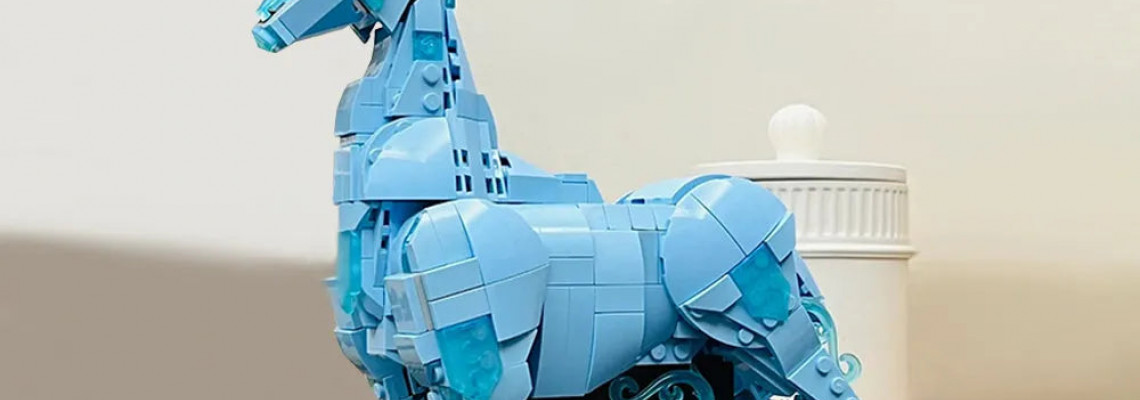Lepin’s Rise And Fall: a Brief Journey

Lepin’s Rise And Fall: a Brief Journey
Learn about Lepin's contentious ascent, decline, and influence on the Chinese building block market.
Who’s Lepin
A Chinese building block manufacturer's reputation was derived from imitating Lego sets. Without a certain, this is against the law everywhere. Interestingly, his brand's Chinese name means "Happy to Build." It may have been intended to make building blocks more widely available; however, copying is not encouraged.
Reasons for Lego’s Aversion to Lepin
- Lepin allegedly breached Lego's intellectual property rights, including patents and trademarks, by stealing Lego designs. This is the leading cause of Lego's intense animosity.
- Lego has seen this brand violation as an outright attack on its reputation.
- Additionally, Lego believes that Lepin's sets' quality and safety are frequently questioned, which contradicts Lego's longstanding commitment.
- This newcomer rapidly increases its market share by duplicating designs, which causes Lego to lose market share very quickly.
The Rise of the Copycat King
Before Lepin, its founder founded "Meizhi," which also offered Lego reproductions for sale; legal limitations soon ended it, but he enjoyed the sweetness and amassed the original funds. He started producing Lepin building blocks at the end of 20141 with three other partners using pre-existing moulds.
Beginning with the Cityscape series, they could quickly enter the market by taking advantage of the fact that many sets were already discontinued. Furthermore, several significant Chinese producers, such as BoLe, DeGao, and S Brand, were active in the market simultaneously, each of whom made original items and had their areas of specialization. Due to its complexity, the Cityscape series required many moulds, had a wide range of parts, entire colours, and different shapes, and made sorting extremely difficult. As a result, other manufacturers were hesitant to enter the production market. After amassing substantial resources, Lepin quickly joined the domestic and worldwide Lego replica market with the Cityscape series.
Lepin was responsible for most of AliExpress's total sales in the infant and toy sector. Remember that toys are a significant first-level category!
The Inevitable Downfall
Lepin, however, engaged in widespread price reduction by providing identical products at reduced rates following their quick growth, which infuriated practically all of their peers. For instance, Lepin made the exact model and sold it for 68 yuan, whereas BoLe's well-liked Friends Series 10498 Treehouse cost 78 yuan at wholesale. Although consumers gain from temporary cheap pricing, they have the potential to cause long-term market disruption. Producers find spending in R&D and market operations challenging when their profits are low. As a result, peer complaints were common. Before Lepin's rise, other manufacturers tended to avoid a specific set if it was already produced by one.
Lego filed a legal lawsuit against Lepin in 2016. After two years of legal fight, they were fined 15 million yuan2, a negligible amount of their 2016 revenues. The end of this year also marked a turning point in the situation. Other manufacturers saw it as an opportunity because the 2016 lawsuit, which cost $15 million, did not match the significant revenues. In an attempt to compete with Lepin's well-liked models, numerous factories started brashly introducing production lines. Furthermore, an internal problem at Lepin emerged, which was marked by nepotism and poor choices in imposing pricing limits on AliExpress. After 2018, things drastically declined, and Lepin now only made up a small percentage of AliExpress's overall sales in the infant and toy area.
Breaking News
With law enforcement from Shantou, Shenzhen, and other parts of Guangdong, the Shanghai police successfully dismantled a criminal organization accused of violating the copyright of the "Lego" brand on April 23, 2019. More than 90 production moulds, nearly 200,000 instruction manuals, over 200,000 packaging boxes, and more than 630,000 completed "Lepin" toys were seized, and four criminal suspects led by Li were apprehended. They also dismantled three locations: production, packaging, warehouses, and more than ten production lines. The total value of the assets involved exceeded 200 million yuan.
Final Thoughts
Lepin is no longer sold officially, but there are still many unofficial ways to buy it. Furthermore, there is little doubt that its appearance has hurt the Chinese toy business, especially the building block sector. However, this industry will also benefit from its demise. Customers' sense of brand identity will be reinforced, and their understanding of copyright will grow.
Furthermore, people are actively looking for cheaper options while the cost of Lego brand kits keeps rising. As a result, Lepin has made it possible for other respectable companies to enter the market. More Chinese building block firms that value copyright, aim for uniqueness, and create high-quality sets will probably appear.